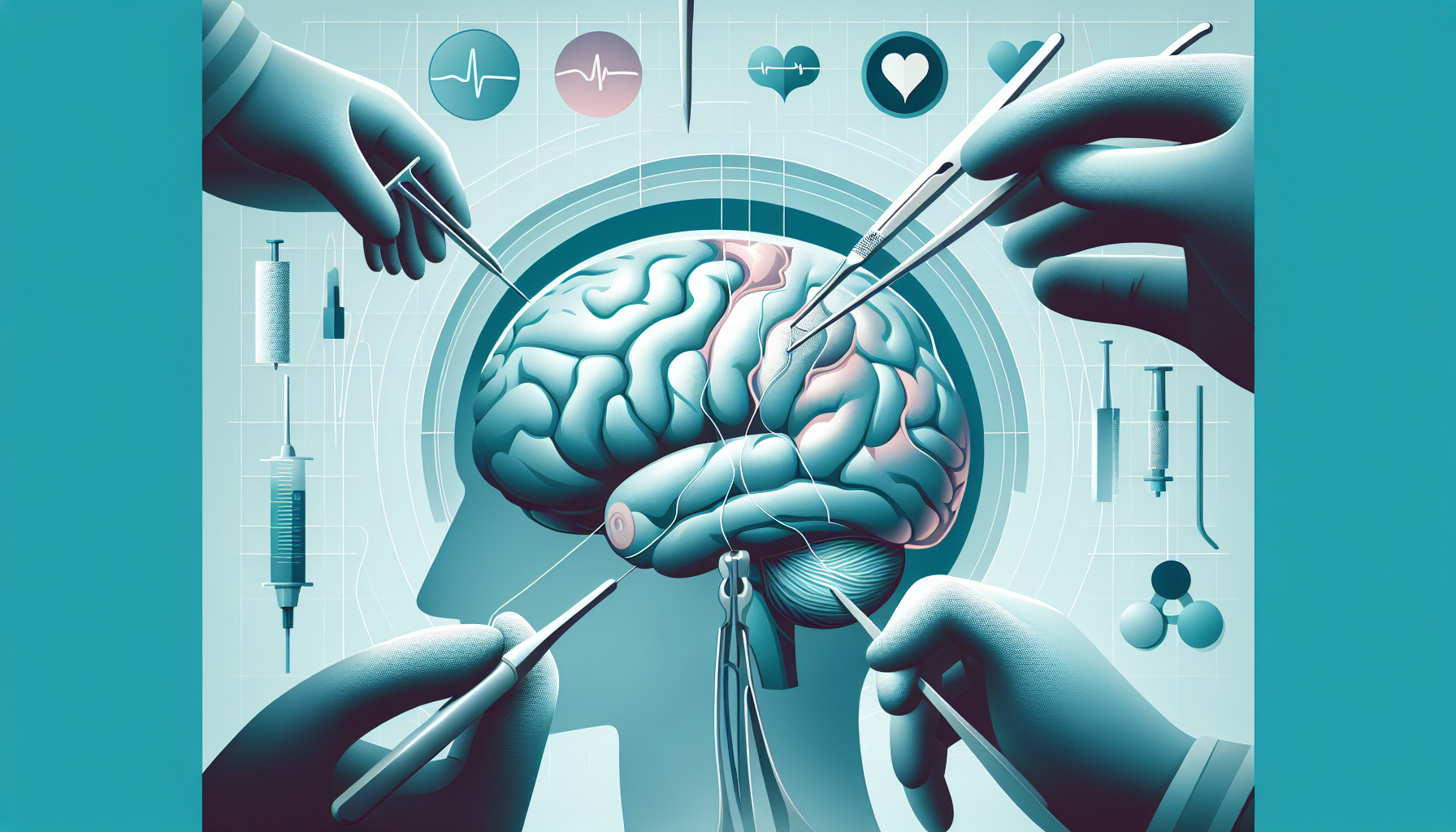Our Summary
This research paper discusses a surgical procedure called bifrontal craniotomy, commonly used to treat issues in the front part of the skull. This operation, however, can sometimes lead to complications such as loss of smell, leakage of brain fluid, infections, and cosmetic issues. The authors propose a revised approach to this procedure to minimize these issues.
The new method focuses on preserving the olfactory bulb, which is responsible for our sense of smell, by carefully handling it during the surgery. They also suggest ways to minimize cosmetic issues, such as using a specific type of saw to reduce bone damage.
The study examined the results of 38 patients who underwent this revised procedure between 2005 and 2020. They found that only one patient experienced loss of smell after the operation, and there were no cases of brain fluid leakage, infections, or cosmetic problems. The study concludes that through careful and meticulous surgical techniques, the risk of complications can be significantly reduced.
FAQs
- What is a bifrontal craniotomy and what is it commonly used for?
- What are some potential complications of a bifrontal craniotomy?
- How does the revised approach to bifrontal craniotomy proposed in the study aim to reduce complications?
Doctor’s Tip
A helpful tip a doctor might tell a patient about craniotomy is to follow post-operative care instructions carefully, including taking prescribed medications, attending follow-up appointments, and avoiding strenuous activities until cleared by the medical team. It is also important to report any unusual symptoms or changes in health to your healthcare provider immediately. By following these guidelines, you can help ensure a successful recovery and minimize the risk of complications.
Suitable For
Patients who are typically recommended for a craniotomy include those with conditions such as brain tumors, blood clots, aneurysms, traumatic brain injuries, epilepsy, and other neurological conditions that require surgical intervention. It is important for patients to undergo a thorough evaluation by a neurosurgeon to determine if a craniotomy is the best course of treatment for their specific condition. Additionally, patients who are in good overall health and are able to tolerate the surgery and recovery process are typically considered good candidates for a craniotomy.
Timeline
Before the craniotomy:
- Patient undergoes pre-operative evaluations, including imaging tests and blood work.
- Patient meets with the surgical team to discuss the procedure and potential risks.
- Patient may need to stop taking certain medications or adjust their diet leading up to the surgery.
- Patient may undergo additional tests or consultations if necessary.
After the craniotomy:
- Patient is monitored closely in the recovery room for any immediate post-operative complications.
- Patient may experience pain, swelling, and discomfort in the days following the surgery.
- Patient may need to stay in the hospital for a few days or longer depending on the complexity of the procedure.
- Patient will have follow-up appointments with their surgical team to monitor their recovery and address any concerns.
- Patient may need to undergo physical therapy or rehabilitation to regain strength and function.
- Patient will continue to have regular check-ups to monitor their progress and address any long-term effects of the surgery.
What to Ask Your Doctor
- What are the potential risks and complications associated with a craniotomy procedure?
- How experienced are you in performing craniotomies, particularly in the area of my specific condition?
- What is the success rate of this procedure for patients with similar conditions to mine?
- What is the recovery process like after a craniotomy, and what kind of post-operative care will I need?
- Are there any alternative treatment options to consider before proceeding with a craniotomy?
- How long will I need to stay in the hospital after the procedure, and when can I expect to return to normal activities?
- Will I need any additional treatments or therapies following the craniotomy?
- How will the surgery affect my cognitive functions, memory, or sense of smell?
- Are there any specific steps you will take during the surgery to minimize the risk of complications?
- What is the long-term outlook for patients who undergo a craniotomy for my condition?
Reference
Authors: Fukuda N, Yoshioka H, Ogiwara M, Hashimoto K, Wakai T, Hanihara M, Tateoka T, Horiuchi R, Kinouchi H. Journal: World Neurosurg. 2025 Feb;194:123561. doi: 10.1016/j.wneu.2024.12.020. Epub 2024 Dec 30. PMID: 39662622
